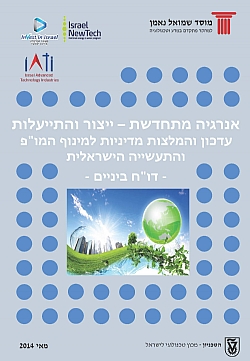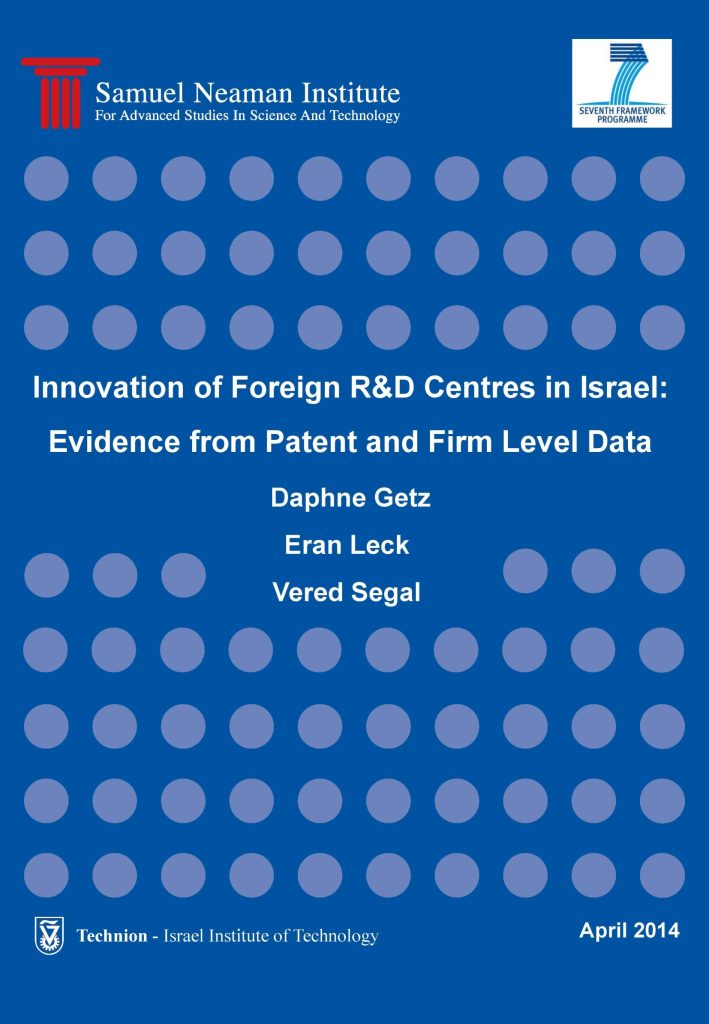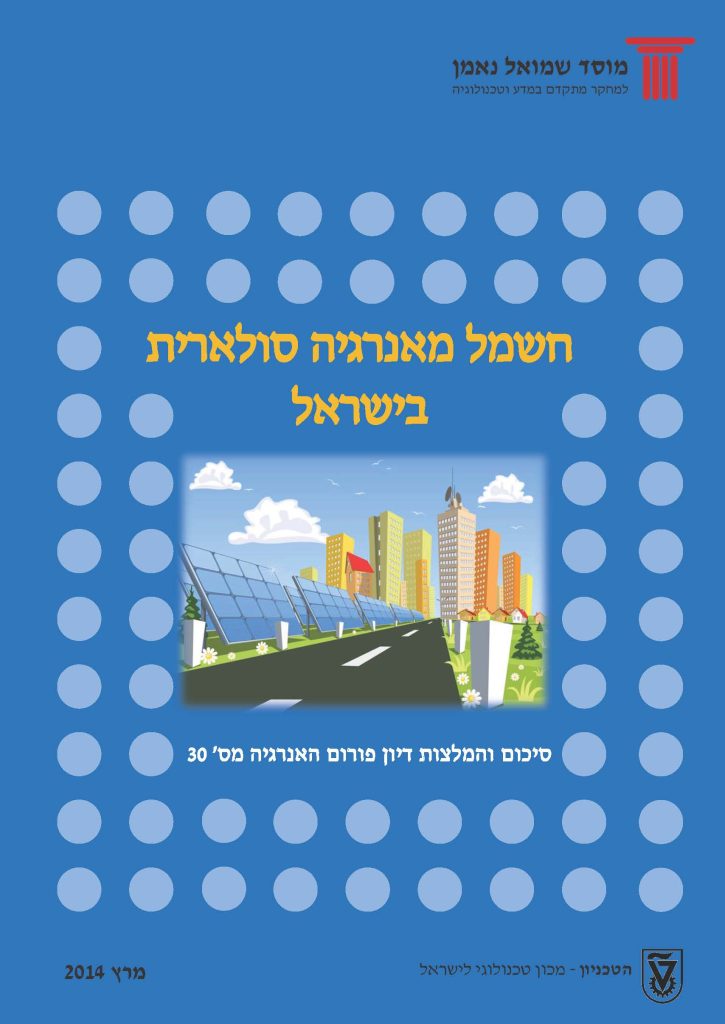Economic incentives to promote energy conservation technologies in residential dwellings

In this study, a series of economic mechanisms was formulated. These will encourage integration of technologies and means of saving energy in residential buildings and help reduce maintenance costs for households and help them cope better with the cost of living. As the basis for this study – the first time in Israel – techno-economic […]
Renewable Energy and Energy Efficiency – Update and policy recommendations for leveraging Israeli R&D and industry

This paper consists of an update of global trends in the renewable energy sector. Our aim is to map the business opportunities, identify the barriers and promote solutions by supporting policy tools and other industry related approaches. After the global economic crisis in 2008-2009 the renewable industry experience growth, both in R&D and in installations. Most […]
Analyzing Teva corporate contribution to Israel Economy

This research report is a part of our efforts to study the contribution of large corporations to the national economy. Three contributions were studied for the last decade 2003- 2012– the direct contribution, the total contribution and the “soft “contribution. In the last years the Teva contribution to the GDP was about one tenth of […]
Annual Report 2013 Samuel Neaman Institute

The Annual report for 2013 summarizes the Samuel Neaman Institute’s activities for this year in a wide range of subjects. In particular special attention was given to subjects of science and technology policy, higher education policy, environment, industrial policy, and physical infrastructure in the State of Israel.
Integration of electric and hybrid vehicles in Israel’s transportation system

The research was conducted for the Ministry of National Infrastructures, Energy and Water Resources. The world’s transportation system is almost entirely based on oil-derived fuels, fed into internal combustion engines (ICE). Energy supply and demand markets – especially for transportation – are not economically unfettered and sustainable. According to the IEA, without targeted and active […]
Innovation of Foreign R&D Centres in Israel: Evidence from Patent and Firm Level Data

The research investigated the impact of multinational companies (MNCs) on the Israeli economy in terms of demand for innovation. The research focused on two main impacts: the positive externalities to the national economy stemming from the activity of foreign R&D centres in Israel and the potential loss to the economy due to the utilization of […]
Energy Forum 30: Solar Energy to Electricity in Israel

In 2009 the government of Israel set a target of 10% of electricity to be generated from renewable sources by 2020. Under this framework, the government policies supporting construction of renewable electricity power plants are enacted through issuing of tenders and authorizing the Public Utility Authority – Electricity to set feed-in tariffs. In light of […]
Survey and Database on Israel’s Scientific foreign Relations on a national and institutional level

Israel’s scientific and technological foreign relations are multiple and diverse. The list of Israeli bodies which have bilateral or multilateral agreements with foreign entities on scientific and technological topics includes universities, colleges, the National Academy of Sciences, government agencies, institutions and public authorities, research institutes and more. The Samuel Neaman Institute won a tender issued […]
Integration of electric and hybrid vehicles in Israel’s transportation system – Phase B: economic analysis and life cycle assessment
This document holds the second phase of the paper, and provides an initial economic analysis and life cycle assessment (LCA) of utilizing these technologies and solutions in Israel. Under the base scenario it is concluded that ICE vehicles (the conventional alternative) have the lowest total cost of ownership (TCO) per kilometer-driven (sans taxes); accounting for […]
Integration of waste-derived alternative fuels in Israel’s transportation system – Phase B: economic analysis and life cycle assessment
This objective of this paper is to provide an initial economic analysis for the production of transportation fuels by anaerobic digestion of biomass and gasification of general waste (including synthetic waste materials). Based on phase A of this study, the analysis details the maximum amount of alternative fuels which could be produced from waste in […]
